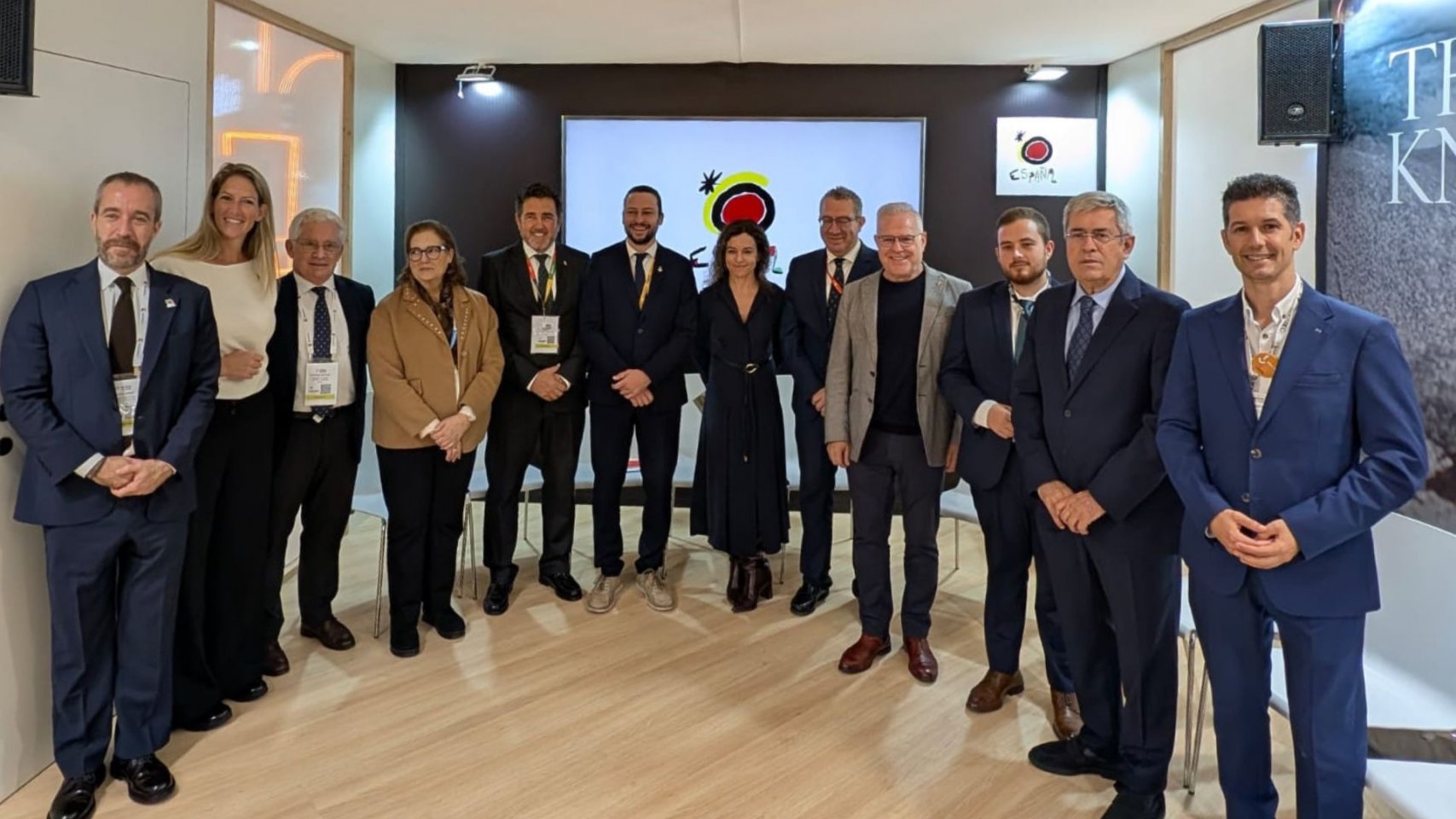The mayor of San Bartolomé de Tirajana, Marco Aurelio Pérez Sánchez, and the rest of the representatives of the Alliance of Tourist Municipalities (AMT) of Spain reaffirmed this Tuesday their commitment to the adaptability of local destinations to sustainable tourism, which is prescribed as a primary objective for the next ten years in the so-called Spain Tourism Strategy 2030.
The regulatory document, which has become an ambitious roadmap for the transformation of Spanish tourism into a much more sustainable, balanced and inclusive model, was approved on October 21 by the Council of Ministers and presented this Tuesday by the Secretary of State for Tourism, Rosario Sánchez Grau, in the commercial framework of the London Tourism Fair (World Travel Market).
In the meeting with the Secretary of State for Tourism, the mayors of the AMT (Adeje, Arona, Benidorm, Calviá, Lloret de Mar, Salou, San Bartolomé de Tirajana and Torremolinos) warned that these municipalities are already working to adapt to the changing needs of residents and visitors, but also insisted that they need a significant increase in specific funding to improve their infrastructure and services.
“The Spanish Tourism Strategy 2030 (ETE-30), committed to the UN 2030 Agenda for Sustainable Development and the European Union’s Sustainable Tourism Strategy, has been developed in accordance with the ‘Spanish Circular Economy Strategy: Circular Spain 2030’, approved on June 2, 2020. It proposes a circular model aimed at reducing resource consumption, extending the lifespan of products and services, and promoting reuse and recycling. In the tourism sector, specifically, it emphasizes reducing emissions and adopting a circular economy throughout the entire value chain to move towards environmentally responsible tourism. This would entail, among other measures, increasing the efficient management of water resources, reducing food waste, minimizing the use of plastics and packaging, and improving the energy efficiency of establishments,” states Marco Aurelio Pérez.
The ETE-30, developed with the participation of over 200 public and private entities, is conceived as a national agenda to address the medium- and long-term challenges facing the tourism sector and lay the foundations for transforming Spanish tourism towards a model of sustained and sustainable growth, enabling it to maintain its global leadership position. It is based on the conviction that the sun and beach tourism of the last 40 years requires a thorough review to meet new challenges and address social changes. Therefore, its fundamental principles include prioritizing socioeconomic growth by focusing on quality and the digital transformation of destinations; preserving natural and cultural values as a primary objective; ensuring a equitable distribution of the sector’s social benefits and tackling rural depopulation; promoting participatory governance between the State and public administrations; and maintaining continuous adaptation so that the sector has the capacity to respond effectively to constant changes.
The objectives
The main objectives of the Tourism Strategy are comprehensive sustainability, meaning ensuring the environmental, social, and economic sustainability of tourism by integrating the climate emergency into decision-making; the use of innovation and digitalization for sustainability as an engine of competitiveness; promoting the well-being of tourism sector workers by improving their working conditions and training; strengthening the social cohesion of destinations by balancing the use of public space and protecting local culture so that tourism benefits host communities; promoting responsible marketing that attracts more conscious tourists and encourages environmentally respectful behavior; and finally, diversifying destinations and tourist motivations to promote year-round tourism. Regarding this objective, Secretary of Tourism Sánchez Grau stated this Tuesday in London that the Tourism Strategy includes measures to redistribute visitor flows and decongest the most saturated destinations where overtourism negatively impacts housing and services. He specifically pointed to “de-seasonalizing tourism, encouraging the arrival of visitors in the mid and low seasons, and diversifying destinations by showcasing lesser-known areas,” he stated.
